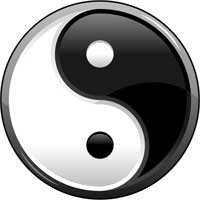Do physical therapists qualify to perform a type of acupuncture, known as dry needling, without training and education in that profession? Peter Kelley, legal counsel for the Massachusetts Board of Registration in Allied Health Professionals, confirms that the Board has not yet reached a decision on whether or not ‘dry needling’ will be officially added to the scope of practice for physical therapists (PTs). The Board is comprised of PTs, occupation therapists (OTs) and their assistants.
This proposal has come under strong opposition from organizations noting that ‘dry needling’ is a type of acupuncture. The Acupuncture & Oriental Medicine Society of Massachusetts (AOMSM) notes that one dry needling training program for PTs is “a weekend-long course.” By contrast, licensed acupuncturists receive years of training, must receive a minimum of a master’s degree from an accredited acupuncture school and must pass the NCCAOM Board exams.
AOMSM notes that dry needling is an approved modality for PTs in some states but has been legally rejected in California, Florida, Nevada, and Hawaii. AOMSM also notes that PTs practicing dry needling acupuncture would be in violation of Massachusetts General Laws/Part I, Title XVI, Chapter 112, Section 162 that grants the right to perform acupuncture by acupuncturists and licensed physicians only.
The New England School of Acupuncture, located in Newton, MA; notes that dry needling is within the scope of acupuncture and opposes the use of dry needling acupuncture techniques by PTs. In a letter to the Board of Registration in Allied Health Professionals, the President of the New England School of Acupuncture writes, “… the Council of Colleges of Acupuncture and Oriental Medicine (CCAOM) has issued a position paper on this topic stating, ‘It is the position of the CCAOM that any intervention utilizing dry needling techniques, either on trigger points or any other anatomical locations, is within the scope of acupuncture, regardless of the language utilized in describing the technique.” The President, Katherine S. Tallman, cites the “rigorous academic and clinical training and testing required for licensure to practice acupuncture in Massachusetts,” and that these standards promote public safety.

The American Association of Acupuncture and Oriental Medicine (AAAOM) opposes the use of dry needling by PTs citing medical literature that “clearly identifies dry needling as acupuncture.” The AAAOM points out that not a single accredited physical therapy school offers “an extensive course or clinical training in dry needling.” The AAAOM notes that current training programs for physical therapists in dry needling “are made up of a one-weekend seminar.” The President and the legal counsel for the AAAOM note that the Vice-president for Allied Professional Insurance Company, a provider of malpractice insurance for physical therapists, will revoke “the malpractice insurance of any Physical Therapist engaged in the use of dry needle technique” because it is a “risk of public endangerment created by a Physical Therapist engaging in a medical procedure for which they have no adequate education or training.”
The CEO of the NCCAOM (National Certification Commission for Acupuncture and Oriental Medicine) opposes PTs using dry needling citing that it is a style of acupuncture and that proper training and assessment is not provided in the education of PTs. The CEO recommends that “physical therapists meet the same standard for education and examination that licensed acupuncturists must meet in order to practice safely and effectively in the Commonwealth of Massachusetts.”

